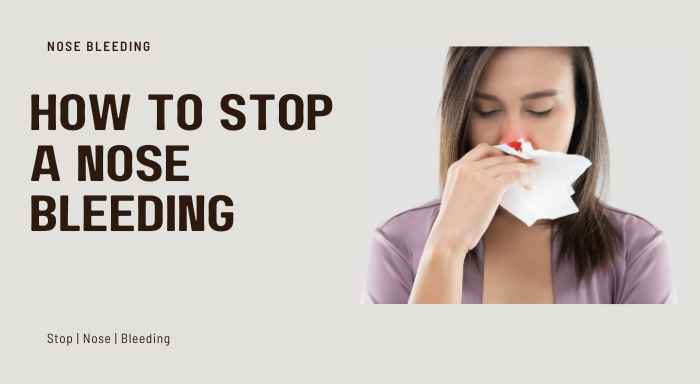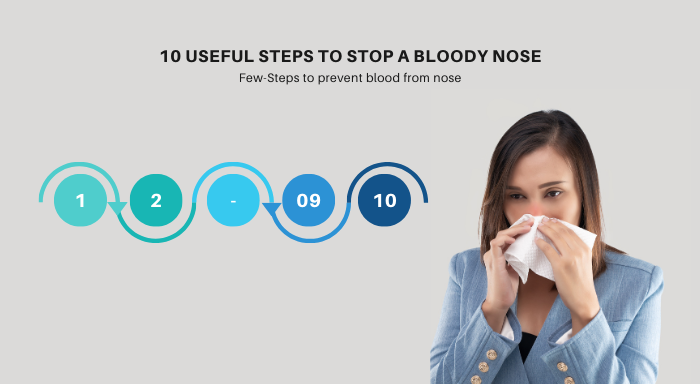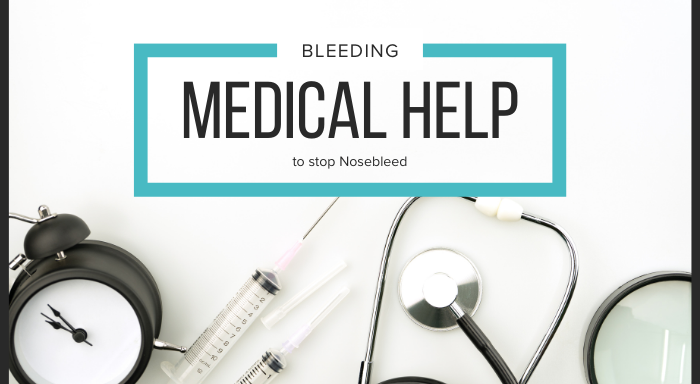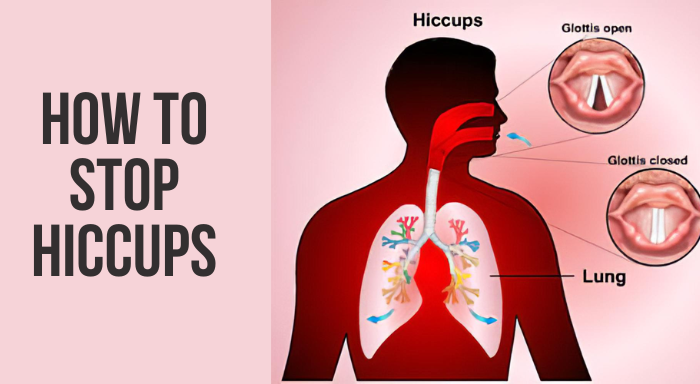How To Stop A Nosebleeds

Nosebleeds can happen to anyone at any time. But most people have it due to high temperatures in summer, although they don’t cause much trouble, they can still be uncomfortable and painful. In fact, according to recent news reports, nosebleeds are quite common among people of all ages. Nosebleeds can happen for various reasons, whether it’s due to dry climate, poor air quality, an injury, or certain medications like anticoagulants. However, knowing how to stop a nosebleed properly can make all the difference in getting it under control quickly and effectively.
10 Useful Steps to Stop a Bloody Nose

Okay, so you’ve found yourself with a nosebleed. Don’t panic—we’ve got you covered with these 10 simple steps to help stop bleeding and get you back to feeling like yourself in no time.
- First, tilt your head slightly to prevent blood from flowing into your mouth or your stomach. Avoid leaning your head back, as this can lead to blood running down the back of your throat and potentially causing vomiting.
- Next, grab a nasal spray and give yourself three sprays in each nostril. It can help constrict the blood vessels in your nose and stop the bleeding.
- If you don’t have nasal spray, try using household items like tissues or a tampon to absorb the blood. Gently insert the tissue or tampon into the bleeding nostril and apply gentle pressure to help stop the bleeding.
- If the bleeding persists, try pinching the soft part of your nose (the nostrils) with your thumb and forefinger. Hold this pinch for at least 10 minutes or until the bleeding stops. Set a timer or watch the clock to ensure you’re applying constant pressure.
- If you feel the urge to blow your nose, resist the temptation, which can cause the bleeding to start again. Instead, continue to apply pressure and wait for the bleeding to stop on its own.
- Once the bleeding has stopped, gently clean up any blood around your nostrils with a cotton ball or tissue. Avoid blowing your nose vigorously, as this can trigger another nosebleed.
- If you experience frequent nosebleeds or if they last for more than 20 minutes, it’s important to consult a healthcare professional, as this may be a sign of an underlying issue such as high blood pressure or excessive exertion.
- In the meantime, avoid activities that could trigger another nosebleed, such as heavy lifting, strenuous exercise, or bending over for long periods. Be mindful of your surroundings, and keep your nasal passages moisturized by using a humidifier in dry climates.
- Remember to stay hydrated and avoid picking at your nose, as this irritates the delicate blood vessels.
- Pouring water over your head for a few minutes will also help stop your nose bleed.
Medical Help to Stop Nosebleed

If your nosebleeds are becoming more frequent or lasting longer than 20 minutes, it’s time to seek medical help. It could be a sign of an underlying issue that needs to be addressed by a healthcare professional.
When dealing with nosebleeds, paying attention to any other symptoms you may be experiencing is important. If you notice light-headedness, chest pain, or a rapid heart rate along with your Nosebleed, seek medical attention immediately.
If you are experiencing nosebleeds three to four times a week or six times a month, this could be a sign of a more serious issue that needs to be addressed by a doctor. Don’t ignore these warning signs; schedule an appointment with your healthcare provider as soon as possible.
Remember, it’s always better to be safe than sorry about your health. Don’t hesitate to seek medical help if you’re experiencing frequent or prolonged nosebleeds, as this could be a sign of an underlying condition that needs to be addressed by a healthcare professional. Take care of yourself and prioritize your health above all else.
Preventing Future Nosebleeds
It’s important to keep the air in your home moist. Dry air can irritate your nasal passages, making you more prone to nosebleeds. One way to combat this is by using an over-the-counter nasal saline spray. You can use this spray every two to three hours while awake to help keep your nasal passages hydrated.
Another helpful tip is to use a cool mist humidifier in your room while you sleep. It will help humidify the air and prevent your nasal passages from drying. You can also apply a small amount of Vaseline or Ayr Saline Nasal Gel inside your nostrils two times a day, once in the morning and once at night, to moisturize them.
If prone to nosebleeds, place a cotton ball soaked in nasal saline gel inside the affected nostril overnight. It will help keep the area moisturized and prevent bleeding. Additionally, you can sleep with your head tipped forward to prevent blood from running down your throat. If you do feel blood in your mouth, be sure to spit it out and avoid swallowing it.
If you’re experiencing frequent nosebleeds, using a decongestant nasal spray in one nostril may help reduce inflammation and prevent bleeding. To stop a nosebleed, pinch the middle of your nose and hold for at least ten to twenty minutes. Applying pressure in this way can help stop the bleeding.
A trick is to apply an ice pack or cold cloth to the bridge of your nose while applying pressure. It can help constrict the blood vessels and stop the bleeding. Remember to continue applying pressure for at least ten to twenty minutes, essential for stopping nosebleeds.
If you’re dealing with frequent nosebleeds, seeing a doctor is important. They can help determine the underlying cause of your nosebleeds and provide appropriate treatment. If you’re taking any blood thinners, discuss this with your doctor, as they may contribute to your nosebleeds.






